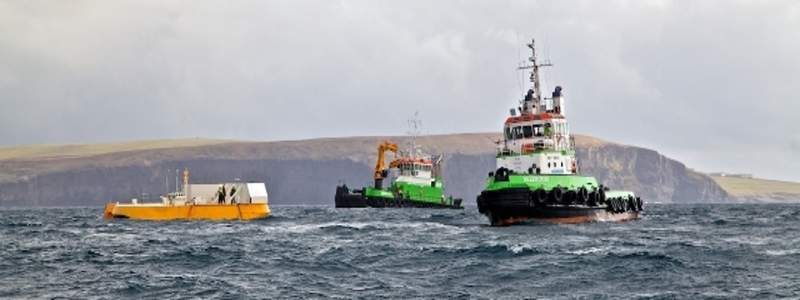

High-technology company Wello’s Penguin wave energy converter (WEC) has successfully generated power into the national grid off the west coast of Orkney in Scotland, UK.
At the beginning of March this year, the Penguin WEC was deployed by UK-based company Green Marine at the European Marine Energy Centre’s (EMEC) grid-connected wave test site at Billia Croo in Scotland.
As part of the Clean Energy from Ocean Waves (CEFOW) project, the device is the first of the three WECs due to be installed at EMEC over the next three years.
EMEC's managing director Neil Kermode said: “This is a tremendous milestone for Wello and all CEFOW partners, but also for the wave energy sector as a whole.
“Not only has Wello’s Penguin survived heavy swell and stormy conditions since being deployed, it is now generating power into the local grid.”
Led by electricity company Fortum, generation of energy is a major step within the CEFOW project. This aims to prepare the Penguin WEC technology for commercialisation by developing the first grid-connected wave energy array in the UK.

US Tariffs are shifting - will you react or anticipate?
Don’t let policy changes catch you off guard. Stay proactive with real-time data and expert analysis.
By GlobalDataAlso, the project focuses on lowering the levelised cost of energy and building an efficient supply chain to support larger wave power projects in the future.
Fortum's senior project manager Mikko Muoniovaara said: “This last month has proven the viability of the Penguin concept, as not only can the technology survive in the harsh waves around Orkney, but it can generate power from them. For Fortum, this is very promising progress.”
The CEFOW consortium comprises the full value chain, including research organisations, wave converter technology developers, marine service providers, and a large multi-national utility company.
Utilising same components that are used in wind turbines, the Penguin WEC device is designed to generate electricity at lower cost than offshore wind projects.
It focuses on producing energy at low initial cost, low installation cost, limited maintenance requirement resulting to low operations cost, high performance with direct conversion, and high reliability with enclosed structure, simplicity, industrial components, and traditional and proven maritime technology.
Image: Green Marine install Wello Penguin at EMEC Billia Croo wave test site. Photo: courtesy of Colin Keldie / CEFOW.



